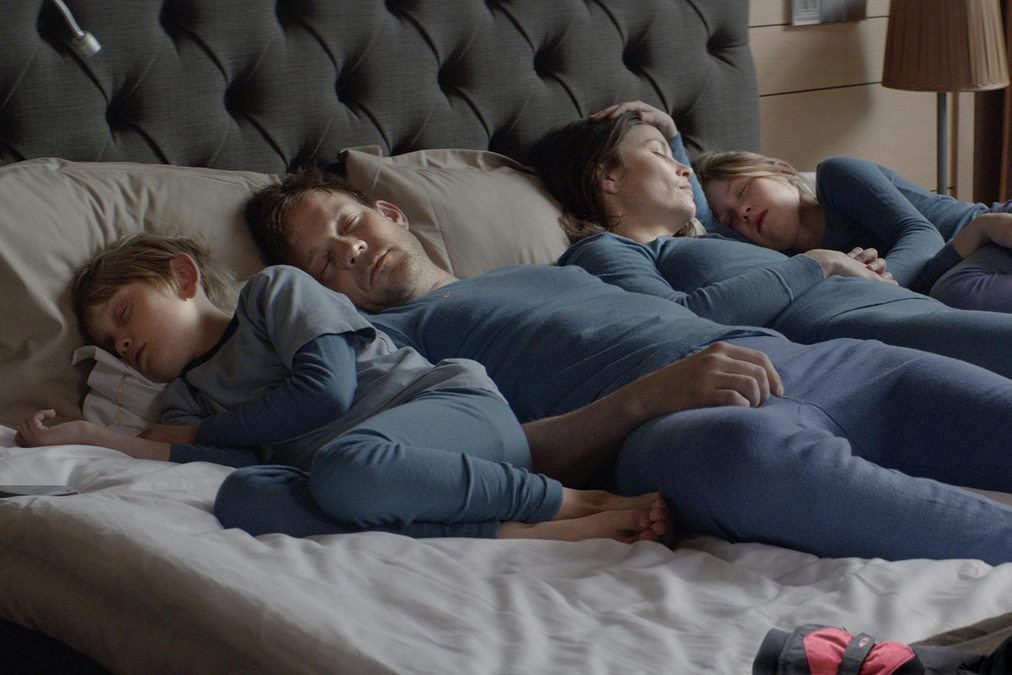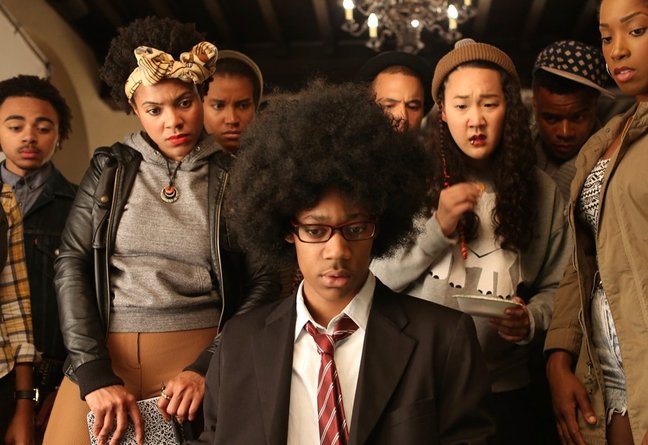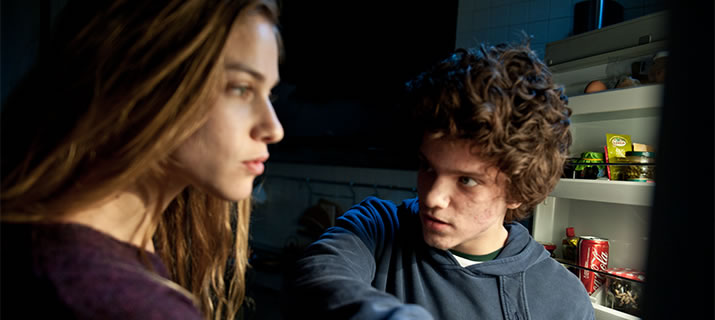
In the droll Swedish dramedy Force Majeure, a smugly affluent family of four vacations at an upscale ski resort in the French Alps. The wife explains to a friend that they take the vacation because otherwise the husband never sees the family. But, while the wife is blissed out, the kids fidget and complain, and the hubby sneaks peeks at his phone.
Then there’s a sudden moment of apparent life-and-death peril; the husband has a chance to protect the wife and kids, but instead – after first securing his iPhone – runs for his life. How do they all go on from that revealing moment? The extent that one incident can bring relationships into focus is the core of Force Majeure.
Clearly, the family has a serious issue to resolve, but there’s plenty of dry humor. In the most cringe worthy moments, the wife tries to contain her disgust, but can’t keep it bottled up when she’s in the most social situations. The couple repeatedly huddle outside their room in their underwear to talk things out, only to find themselves observed by the same impassive French hotel worker. The most tense moments are interrupted by an insistent cell phone vibration, another guest’s birthday party and a child’s remotely out-of-control flying toy.
Force Majeure is exceptionally well-written by writer-director Ruben Ostland. It’s just his fourth feature and the first widely seen outside Scandinavia. He transitions between scenes by showing the machinery of the ski resort accompanied by
Baroque organ music – a singular and very effective directorial choice.
Force Majeure is Sweden’s submission for the Best Foreign Language Oscar. I think it deserves an Oscar nomination, although I can’t see it beating out Two Days, One Night, Ida or Leviafan.
[I’ve included the trailer as always, but I recommend that you see the movie WITHOUT watching this trailer – mild spoilers]


